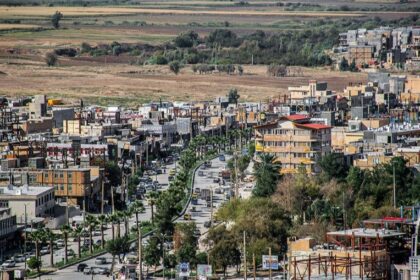RASC News Agency: In a chilling reflection of the escalating repression faced by Afghanistani exiles in the region, Nasir Behrouz an Afghanistani journalist and outspoken critic of the Taliban has been detained by Pakistani security forces. Multiple credible sources, including human rights advocates and media watchdogs, have confirmed that Behrouz is currently being held in police custody, and there are mounting fears that he could be forcibly deported to Afghanistan a country now under the brutal grip of the Taliban’s extremist regime. Behrouz has spent recent years using his platform in exile to document and denounce the Taliban’s widespread human rights violations, including their systematic silencing of women, journalists, and civil society actors. His work has made him a well-known figure in the Afghanistani diaspora, and critically a target for Taliban retribution. Should he be returned to Afghanistan, advocates warn that he would face immediate danger, including potential imprisonment, torture, or assassination at the hands of Taliban intelligence operatives, who have shown no restraint in persecuting dissidents.
The news of his detention has sparked a wave of concern and condemnation across civil society networks. Afghanistani journalists, refugee rights defenders, and international press freedom organizations are calling for urgent intervention by the United Nations, global media alliances, and diplomatic actors. These groups are demanding both the immediate release of Behrouz and assurances that he will not be subjected to deportation. The case of Nasir Behrouz is not isolated. Over recent months, both Pakistan and Iran have escalated their campaigns of forced repatriation, expelling thousands of Afghanistani refugees many of whom had fled Taliban persecution. Among them are former civil servants, women’s rights defenders, and media workers whose safety in Afghanistan remains gravely threatened. This coordinated regional push to eject vulnerable populations has drawn sharp criticism from international legal bodies, who argue that such actions amount to a violation of international refugee law and non-refoulement obligations.
Despite global appeals, authorities in Islamabad have continued to detain and expel Afghanistani nationals with alarming frequency. The Pakistani state has failed to differentiate between economic migrants and individuals fleeing Taliban terror many of whom were granted temporary protection following the 2021 collapse of the previous Afghanistani government. For journalists like Behrouz, the consequences of forced return are catastrophic. The Taliban’s record on press freedom is one of unrelenting brutality. Since seizing power, the group has dismantled nearly all independent media institutions in the country. Dozens of journalists have been arbitrarily arrested, tortured, or disappeared. Women have been driven out of media spaces entirely, while reporting deemed “un-Islamic” or “anti-Emirate” is met with swift and violent punishment. In this climate, returning an exiled journalist to Taliban-controlled territory is tantamount to a death sentence.
International rights organizations, including Human Rights Watch and Reporters Without Borders, have long warned of the dangers posed by the Taliban’s media crackdown. Behrouz’s detention now serves as a grim test case of the world’s willingness to uphold the values it claims to protect: freedom of expression, press freedom, and the right to asylum. The global community must act decisively. Silence or delay will not only endanger the life of Nasir Behrouz but will also embolden a regime that thrives on the erasure of truth. Protecting him is not just a matter of safeguarding an individual it is a statement of resistance against the normalization of tyranny.






